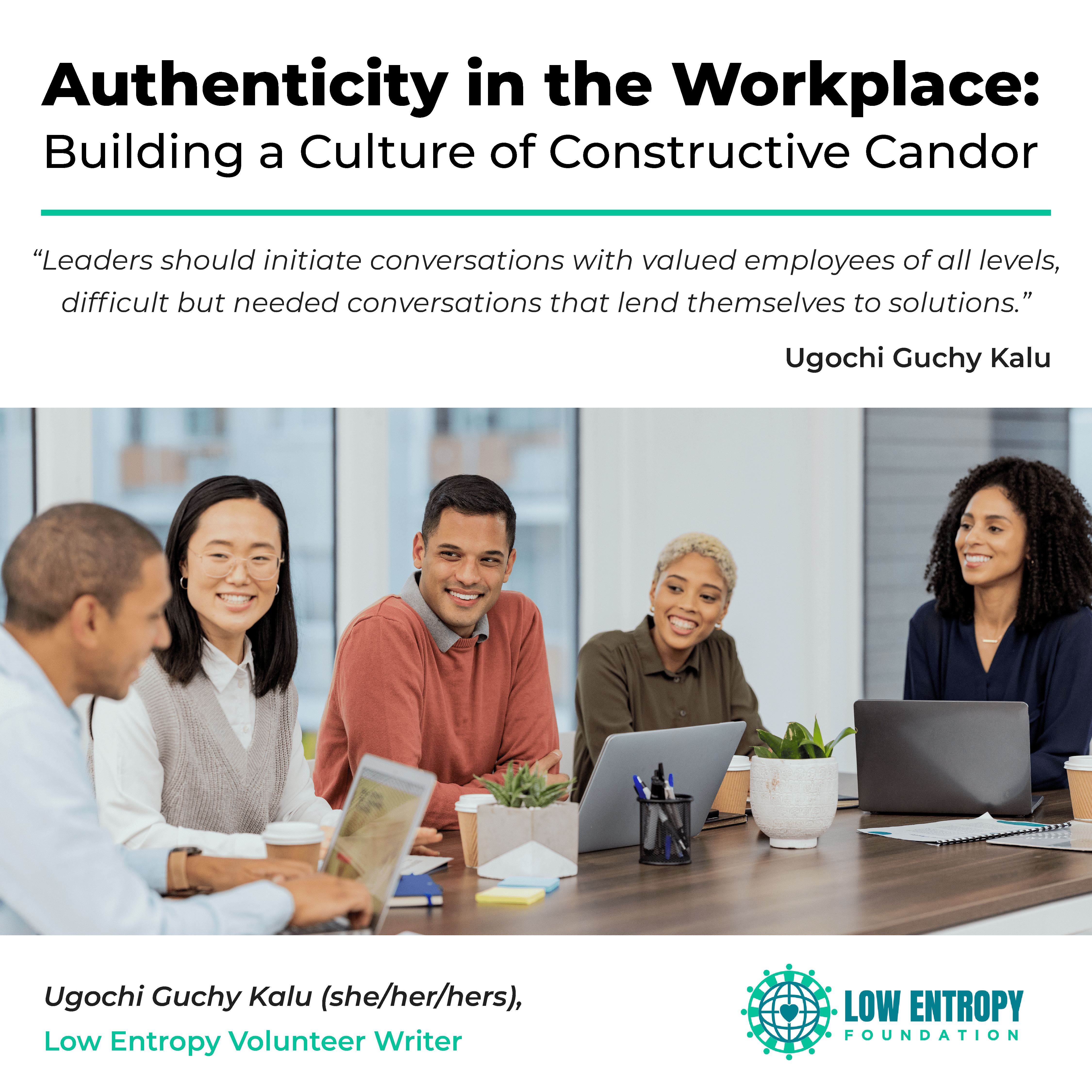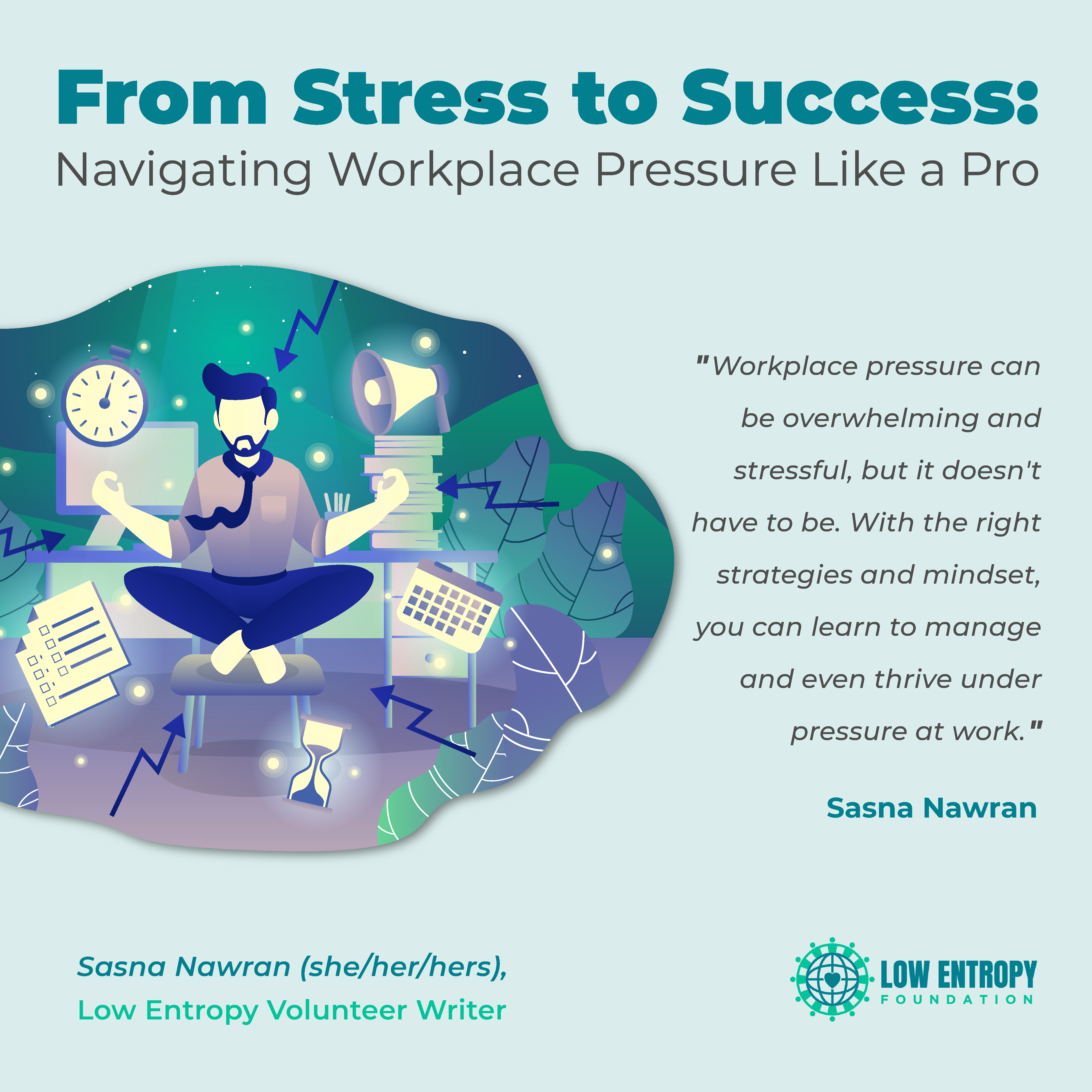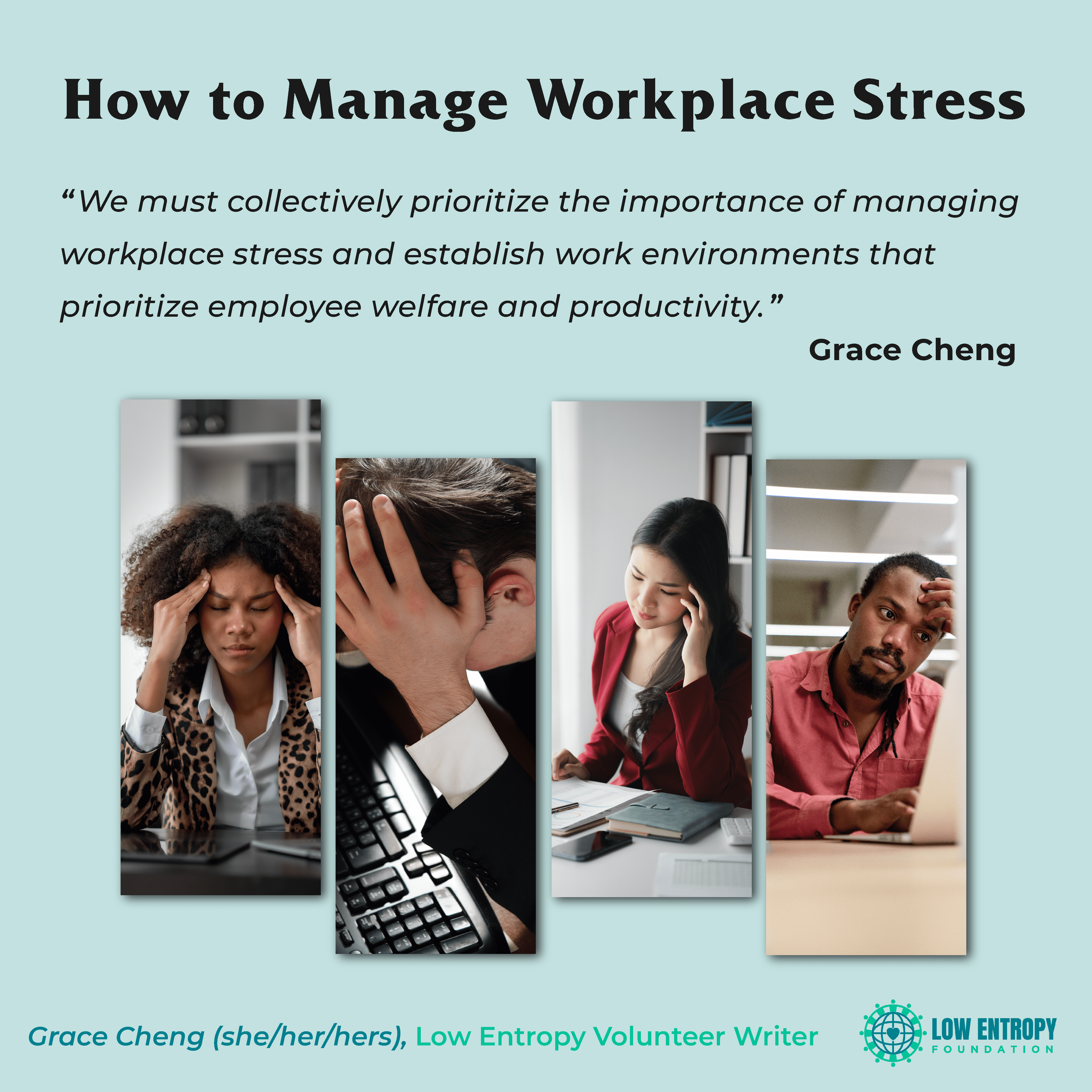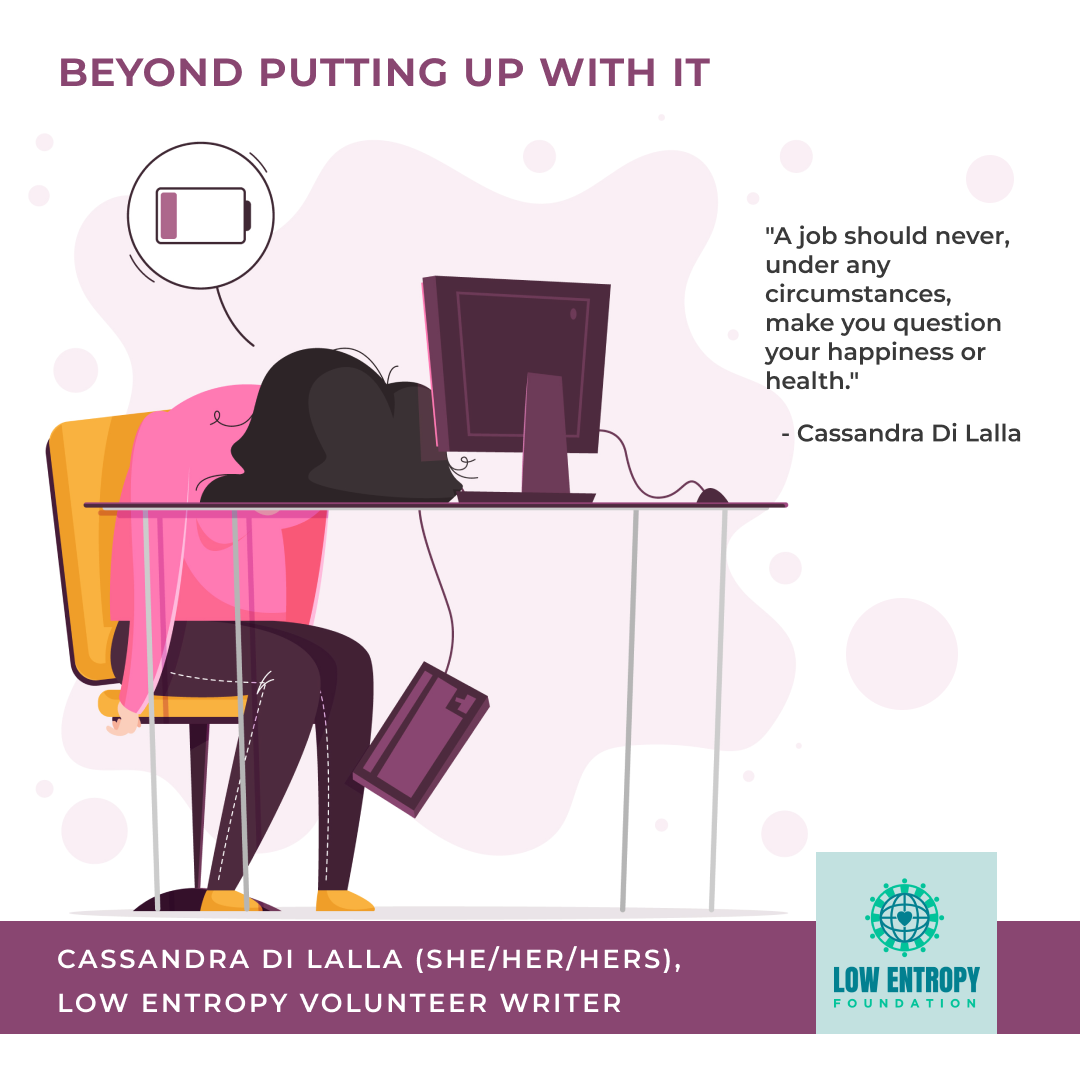Authenticity in the Workplace: Building a Culture of Constructive Candor
January 27, 2024

Ugochi Guchy Kalu (she/her/hers), Low Entropy Volunteer Writer
If everyone said to everyone else’s face what they really believed, there would be no end to our griefs; If all work environments empowered everyone to speak their truth without holding back, there would be anarchy in the workplace, as no one person can bear the weight of other people’s perspectives, no matter how hardened they are.
Authenticity at the workplace challenges the traditional norms of politeness, aiming to create a more open, engaging and innovative work environment. The question that begs an answer remains: are organizations really accepting of the concept of authenticity? Can people frankly speak their minds without consequences? Can a firm “no” be judged as it is, or would it be considered insubordination?
In my many years working in corporate environments, the politeness rules vary as much as the management styles. I have been allowed to speak my mind, using my own words while allowing my emotions to unravel in one organization, while in another, I was given an employee handout. This handout contained words to use when communicating with co-workers: it was like a corporate vocabulary college where we learnt to speak corporate gibberish. Anyone who has worked in corporate would have encountered lingo such as, “let’s put a pin in it,” “let’s circle back,” “allow time to unpack,” “let us listen to Jane’s pain-points,” “this approach does not align with our values,” “as per my last email,” “our team’s bandwidth,” “let’s check in,” “performance review,” “growth plan,” etc . . . it is unending, the robotic way we were trained to speak and act to be considered polite and collaborative. In full consideration of how these phrases give most of us PTSD, one can appreciate how much sanity we might experience if allowed to speak the same language that we do when we go home to rant and complain about our real feelings to our family and friends.
A few years after working in a less censored organization, I joined another, where everyone was mandated to be kind with their words and actions, where people would think twice before responding to a simple “Good morning, how are you?” as no one wanted to be quoted. People used hundreds of smile emojis to convey the pleasantness of their micro-aggressive messages, and emails contained more than five exclamation marks to drive home a point. While this communication style prevented workplace hostility, it only solved the problems on the surface. It was not enough to help us navigate our profound and important disagreements.
My experience in these workplaces with varied values made me a well-rounded professional who could manage all kinds of social situations. I adopted the art of staying neutral when faced with the most difficult conversations, accepting “No” as a complete sentence and creating boundaries while respecting those of others. This balance meant that I was always myself: no masks, no fake smiles, no hurt emotions, no fragile ego. I am now more in touch with reality, with no unreasonable expectations, no feelings of entitlement and no unresolved grudges. I became someone who can identify and relate to all kinds of perspectives, and a person who stays away from condescending and patronizing people. Most importantly, this made me a person who sees work as work without any attachment to it or the people thereof. I now understand where the limits of it all lie. Indeed, while contrived politeness at the workplace can be seen as the enemy, the unwaveringly earnest loyalty of friends, family, upper management and work “besties” can be just as detrimental. That blind protective affection keeps people from telling the truth; this alone can destroy a person of high potential.
Leveraging my experiences, I would recommend an overhaul in organizational leadership values where authenticity and constructive candor is given credence. The leadership must provide opportunities for feedback without consequences on some key recurring items. These opportunities involve far more than sending out anonymous surveys, reviews and town halls. This culture of constructive candor need not be filled with rebuttals, onslaughts of ideas, protests or broadsides from hopeless cynics, as these can be just as counterproductive as silence. Leaders should initiate conversations with valued employees of all levels, difficult but needed conversations that lend themselves to solutions.
Let us be honest: this approach is harder than it looks. There is a reason it has not become standard operating procedure for most companies, even in supposedly liberal organizations. It takes incredible humility and strength on the part of leaders. But if building a culture of constructive candor is hard, failure that results from insufficient candor is so much harder.
In conclusion, while authenticity is crucial, it is essential to strike a balance with politeness to maintain a professional and respectful workplace. Authenticity should not be an excuse for rudeness or disregard for others’ feelings. Instead, organizations can focus on fostering a culture of constructive communication, where employees can express themselves authentically while remaining considerate of their colleagues.
—
My name is Ugochi Guchy Kalu. As a strong advocate of authenticity, I would encourage you to bring your genuine self to the table as this is by far the bravest journey of all time!
One thought on “Authenticity in the Workplace: Building a Culture of Constructive Candor”
Leave a Reply
GET INVOLVED
At Low Entropy, we believe changing the world starts with changing ourselves.
Founded in 2015, Low Entropy Facilitates conversations that encourage diversity and promote inclusivity.
We understand that life can be confusing at times. It can seem challenging and sometimes you may feel like no one really “gets you.” We offer an opportunity to connect with others who have the capacity to understand you.










Awesome article. One can be authentic, direct and truthful without being mean and degrading. For some that is a difficult balance to strike. As someone I know stated” You are what we see”. I am proud of that. Some may not like that but I can live with that as they don’t see the value in me and authenticity.